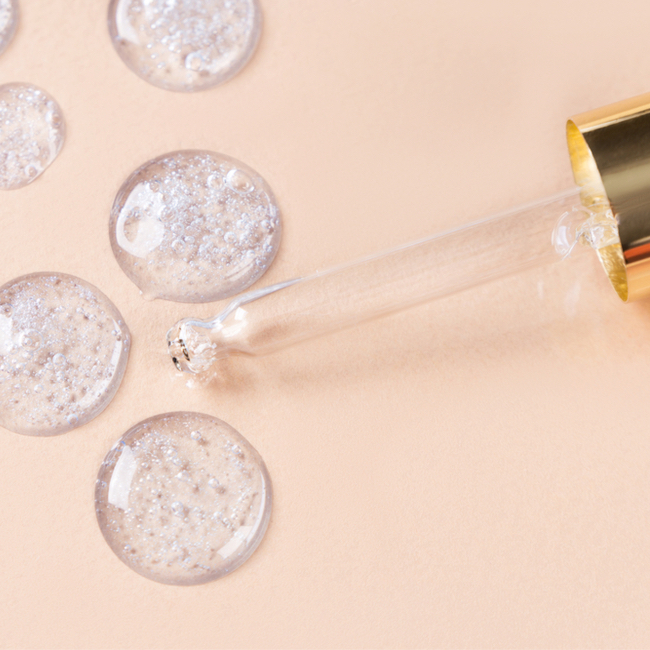
Topical Collagen
Although continued collagen production within the body is essential for smooth and ageless skin, applying topical collagen will do very little to make any lasting impact on your complexion. “While putting collagen on your skin may sound good in theory, because collagen is a large molecule it is unable to penetrate the skin to have the desired effects for anti-aging,” explains Garshick. Topical collagen may be useful for moisturization purposes, but overall it is not a valuable ingredient for anti-aging. If you really suffer from dry skin, there are much more effective ingredients to prioritize.
Coconut Oil
Coconut oil has often been regarded as a particularly useful ingredient for hydrating and smoothing the skin. That being said, according to Garshick, coconut oil may actually make irritation in some skin types worse. “While coconut oil is thought of for various skin benefits, there is not enough evidence to fully support its role for anti-aging,” she says. “Importantly, in some individuals it can worsen the potential for acne.” Although coconut oil has the potential to reduce inflammation in the skin, it is generally not the best choice when working to fight off signs of aging in your appearance.
Hyaluronic Acid
Hyaluronic acid is a buzzy skincare ingredient that is typically used to hydrate and plump the skin which has been said to reduce the appearance of fine lines and wrinkles. While this may sound promising, it’s not likely that your investment in this serum is really doing much good for your skin in the way of anti-aging. “The hyaluronic acid molecule is very large so it is important to note that applying hyaluronic acid topically is not going to give you the same results as you would get by injecting hyaluronic acid as you do with filler.” That being said, you may still notice some hydrating benefits for this acid, but in terms of anti-aging there are more valuable ingredients you could be using for significant changes.
So what should you use instead?
In order to see a real impact from your skincare routine, it’s first and foremost important to remember that good things take time and it may be months before your skin begins to reflect the ingredients you’ve been applying. However, Garshick notes that products that contain retinol and retinoids, vitamin A, antioxidants, and most importantly, sunscreen will do the most for keeping signs of aging at bay on your skin.
Retinol and vitamin A will naturally boost collagen production within the body and “antioxidants such as vitamin C which help to fight free radical damage,” says Garshick. Sticking to these dermatologist approved ingredients and giving your skin ample time to adjust to your routine will make all the difference in preserving an ageless complexion for years to come.


